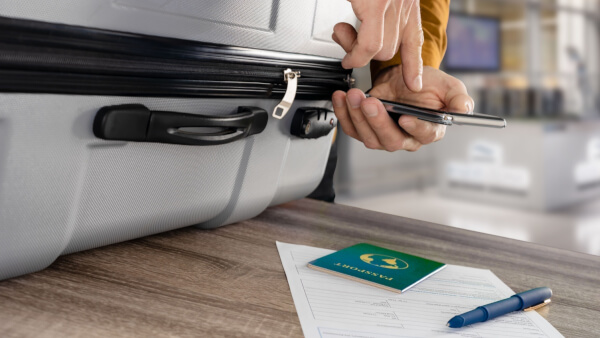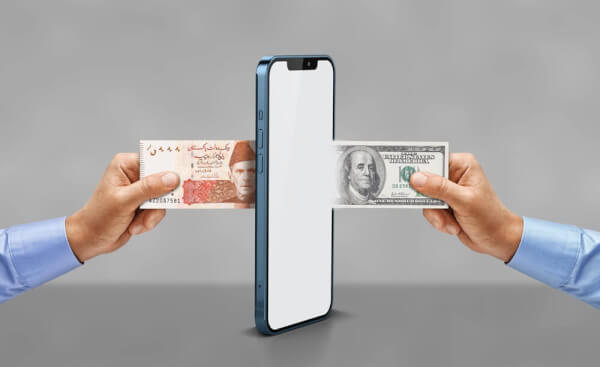Best CommBank Credit Cards in Australia: Comparison of Rewards and Fees
Compare the best CommBank credit cards. Discover which CommBank credit card is best for you, from Qantas points to zero-interest options and travel perks.

Direct debits have become a regular part of everyday banking, ever since the payment collection system was invented back in 1964¹.
We use them to pay household and utility bills, along with other recurring payments like credit card and loan repayments.
But what happens when you need to cancel a direct debit? It is easy to do?
In this guide, we’ll cover all the essentials of cancelling a direct debit. We’ll look at how and when to do it, and whether its best to go through your bank or direct to the company taking the payment.
And remember, there are other ways to pay for goods and services, without needing to set up direct debits. If you’re sending money internationally, for example, it could be cheaper to use a specialist money transfer service.
Open a free Wise multi-currency account and you can send money worldwide with low fees and the real, mid-market exchange rate. What’s more, you can repeat transactions easily with just a few clicks, or taps if you use the handy Wise app – perfect for recurring bills and monthly payments.
In a nutshell, a direct debit is simply an instruction to your bank. This instruction authorises a company (such as your utilities provider, for example) to collect pre-agreed amounts of money from your account.
Before the first payment can be taken, you should be informed of and agree to the payment amounts and collection dates. This information is usually included as part of a Direct Debit Agreement.
After a little bit of setup, direct debits are designed to be a simple and convenient way to pay regular weekly, monthly or yearly expenses.
You don’t need to enter account details and arrange payments individually every month. You can simply agree to a direct debit system and the money will be taken out automatically. In short, you don’t need to think about it.
Direct debits can run happily in the background, covering recurring bills without you needing to lift a finger. But what happens when you need to cancel a direct debit?
You might need to cancel a regular payment because your income has fallen or you’re facing financial difficulties. Or maybe you simply don’t need to pay for a service anymore, or you’ve set up a direct debit in error.
The first important thing to know is that by cancelling a direct debit, you could potentially be breaching a contract. For example, with your energy supplier, or credit card company. It’s important to check whether this is the case before cancelling any direct debits, just in case you end up saddled with a fee to pay.
If you’re ready to go ahead, you can cancel a direct debit in one of two ways. The first is through your bank, while the second is with the company who receives your payments each month.
To cancel a direct debit with your bank²:
Get in touch to find out their procedure for cancelling direct debits. It’s usually best to do it in writing so you have a record of your request, but you can usually do it by phone, email, letter or in person at a branch. There are also letter templates you can find online which could be helpful.
Ask your bank to cancel the direct debit authorisation – either immediately or by your preferred date
Provide details of the direct debit - including the name of the organisation you are paying, your account details and the customer reference number (if known)
There may be a slightly different procedure if your direct debit is from a cheque, savings account, credit card or debit card. But your bank should advise you of this.
If you’re cancelling directly with the company you are paying, follow these steps³:
It can be a good idea to contact both your bank and the organisation. This makes sure the company is kept in the loop, and that the direct debit is actually cancelled by your bank.
Remember that each bank, building society and company may have a different process for cancelling direct debits. Also, you may need to give a little notice. So, if you have a direct debit payment coming out the same or next day, it may still be taken as your cancellation request can’t be processed in time.
Direct debit is undoubtedly a convenient, no-fuss way to handle everyday bills and recurring expenses. But it’s not the only option out there, nor is it always the best choice for all kinds of payments.
If you need to send money abroad, for example, there’s the risk that your bank could charge high fees and give you a poor exchange rate. This inevitably makes your payments more expensive.
Here’s a cheaper option - get a Wise multi-currency account and you can send money at the real, mid-market exchange rate. This means no mark-up added on top, so you get the fairest rate around. And when it comes to fees, they’re low, fair and always transparent.
Even better, you’ll also get a linked debit MasterCard so you can spend anywhere in the world and always get the real exchange rate.
So, that’s you sorted if you ever need to cancel a direct debit. You should now know how to get your bank, or the company you’re paying, to cancel direct debit authorisations.
Just remember to always check the small print first, so you can cancel without accidentally breaching the conditions of your contract.
Sources used:
Sources checked on 17-October 2020.
*Please see terms of use and product availability for your region or visit Wise fees and pricing for the most up to date pricing and fee information.
This publication is provided for general information purposes and does not constitute legal, tax or other professional advice from Wise Payments Limited or its subsidiaries and its affiliates, and it is not intended as a substitute for obtaining advice from a financial advisor or any other professional.
We make no representations, warranties or guarantees, whether expressed or implied, that the content in the publication is accurate, complete or up to date.

Compare the best CommBank credit cards. Discover which CommBank credit card is best for you, from Qantas points to zero-interest options and travel perks.

Does your Bankwest credit card have travel insurance? Discover which cards still offer complimentary cover, the activation rules, and what it covers.

Planning an international transfer? Our Money Travels review covers everything from fees, exchange rates, and safety to help you decide if it's right for you.

Thinking about Hay Australia? In this Hay review, we break down the account features, card benefits, fees, and how it compares to alternatives.

Planning a large money transfer with ING Bank in Australia? Discover fees, daily limits, processing times, and alternatives.

Thinking about buying US shares? Learn how to invest in the US market from Australia, from choosing a broker to managing tax.